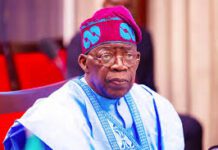The Armed Forces of Nigeria have had to engage in various internal security operation across the country since 1960 when Nigeria gained her independence from the British Colonial government.
These internal security challenges include political unrest, civil war, religious or /ethnic crisis, militancy, insurgency/terrorism as well as farmer-herder crisis and banditry some of which have been addressed while some are still being tackled in different parts of the country.
In the 1960s the country was faced with political crisis in the old Western Region which escalated beyond the control of the police leading to military intervention that eventually culminated into military coups in 1966 and eventually civil war between 1967 and 1970.
In the 1980s and 1990s, there were religious crises in the north especially in Kano, Kaduna, Yola, Bauchi and Jos where thousands of lives were lost and properties destroyed leading to deployment of the military to restore peace.
There was also the agitation from the oil producing Niger Delta region that gave rise to militancy of which the military was active in stemming the tide until the introduction of Amnesty programme by the federal government.
Also, since 2009, the country has been contending with multiple issues of terrorism by the Boko Haram Sect in the North East, farmers-herders’ clashes in the North central and banditry in the North West and central.
It is worthy of note that the Nigerian military especially the Nigerian Army has taken full responsibility for the restoration of peace in all the affected parts of the country.
In the North East, a lot has been done and still being done to put an end to the Boko Haram and Islamic States of West Africa Province (ISWAP) Terrorist activities with commendable successes so far.
Between 2009 and 2015, greater part of Borno, Adamawa and Yobe States we overran by the terrorists with carving of territories and establishment of caliphate by the insurgents, the terrorists also succeeded in sacking military and police bases and formations in the north east as well as recruitment of more fighters into its fold.
Between 2012 and 2015, many cities including Kano, Kaduna, Madalla in Niger and Abuja, the Federal Capital Territory were being attacked with bombs by the terrorists. The bombings included that of the United Nations building, Thisday Newspapers, Nyanya bus terminal and Mogadishu cantonment all in Abuja with attendant loss of lives and properties.
Since July 2015, there have been tremendous successes by the military through Operation Lafiya Dole, in overturning the fight against the insurgents by recovering all the territories that were hitherto under the control of the terrorists and decimating them in all fronts.
Today, no local government area in the region is under the control of the terrorists which has made them to resort to laying ambushes for commuters and security agencies as well launching attacks on vulnerable communities to steal food and money for survival.
Similarly, the menace of farmers-herders’ clashes and banditry had and is still being handled by the military in the affected states with a number of operations being launched by the Defence Headquarters, the Army and Air Force to address these security challenges.
Among the ongoing operations are the DHQ’s Operation Hadarin Daji, Operation Safe Haven, Operation Whirl Stroke, Operation Whirl Punch, Operation Gama Aiki and Operation Sahel Sanity.
These operations have achieved tremendous successes in the various theatres especially in Kaduna, Katsina, Sokoto and Zamfara states where the activities of bandits have been curtailed to a great extent.
Nigeria as a country has evolved in the areas of peace building process and management of national security in the last 60 years.
The Chief of Army Staff, Lt.-Gen. Tukur Buratai, is of the believe that the Nigerian Army has discharged its constitutional responsibilities effectively in defending the sanctity and territorial integrity of the country as well as ensuring that the unity of Nigeria is not compromised.
While speaking to the News Agency of Nigeria on the country’s journey so far at 60, Buratai said that the Nigerian army had since pre-independence played critical role to ensure the country’s existence and contribute to its economic, political and socio-economic development and most importantly in the area of defence and security of the country.
He said the participation of the army in various conflicts within and outside the country was significant, adding that it had held the country together as a united and indivisible country.
According to him, if you look at our constitutional role and of course vis-a-vis our defence priority, the defence of Nigeria from external aggression is number one priority and to maintain her territorial integrity is second.
“These key priorities are fundamental and this has manifested in the successful prosecution of the Nigerian civil war.
“An unfortunate war of the brothers with unfortunate consequences of war as it should be and at the end of the war, it has been declared no victor, no vanquish but the memory still lingers on in terms of the human casualties, the economic consequences and so on.
“Equally, over the years, we have participated in several internal security operations to ensure that the country does not disintegrate, to ensure that the country remains one and this has been done very successfully when you talk of the western region crisis, the Maitatsine crisis, the Taliban crisis and what we are facing today, the Boko Haram crisis.
“The Nigerian army has kept the country united, strong and it has further enhanced the image of the country with the patriotic and gallant performance of our troops across the various theatres of operation.
“We commend officers and men who over the years have really worked tirelessly so that Nigeria remains one, secured despite all security challenges and their patriotic stand is what we are reaping today.
“Nigeria is still waxing stronger, we have gone through different challenges in terms of the economic and political turbulence and this has been stabilised for now as far as I am concerned.
“With more resilience, with more support from the public, we will ensure we make a great difference and the challenges that we are facing now will be a thing of the past,’’ he said.
Buratai also urged Nigerians calling for the country’s disintegration to desist, assuring that the Nigerian army was solidly behind a united Nigeria and would do everything possible to ensure that.
“Apart from the political and cultural unity, the historical affiliation, the economic bonds that have existed within and among the different parts of the country, it will be very difficult.
“We cannot afford a second civil war and everything will be done possible by the grace of God to ensure that we don’t get this country divided no matter the challenge no matter the outcome of the peace process to keep this country one.
“My advice is that anybody dreaming of having another country is wasting his time and we will surely address them if at all they rear their ugly heads. We must be united and we must keep Nigeria one and we must progress as well,’’ he added.
On his part, a former spokesperson for Nigerian Army, Brig.-Gen. Sani Usman (rtd), said the security agencies led by the armed forces had done a lot in strengthening the security of the nation over the years.
Usman said the recent successes recorded by the military in the north east and other parts of the country was commendable, adding that a country like Colombia had to grapple with insurgency for almost 58 years before arriving at a truce.
He called on all Nigerian to support and encourage the government and the security forces to ensure that they successfully deal with the challenges bedeviling the country.
Usman also called on Nigerians to desist from making divisive comments, adding that there was need to emphasise on things that unite the country.
“So basically, we have had all these divisible groups and these were orchestrated or encouraged by people who are supposed to even know better not knowing that anything that affects a single Nigerian has the capacity of affecting the whole of Nigerians because human beings are precious gift from God and no life is more important than the other.
“By the time we look at it this way and we understand that look, the man living in the north definitely would prosper and do better if he had the understanding, cooperation and support of the man in the south vice versa, Nigeria will be a better place.
“Of course, to lead in that is the government. The government has to show greater sense of direction in terms of telling Nigerians. Those people who commit infractions have to be sanctioned according to the law so that it gives every other person sense of belonging that the ordinary man is being protected from the mighty ones and everybody is equal before the law. (NANFeature)
#### If used please acknowledge the writer and the News Agency of Nigeria (NAN)




